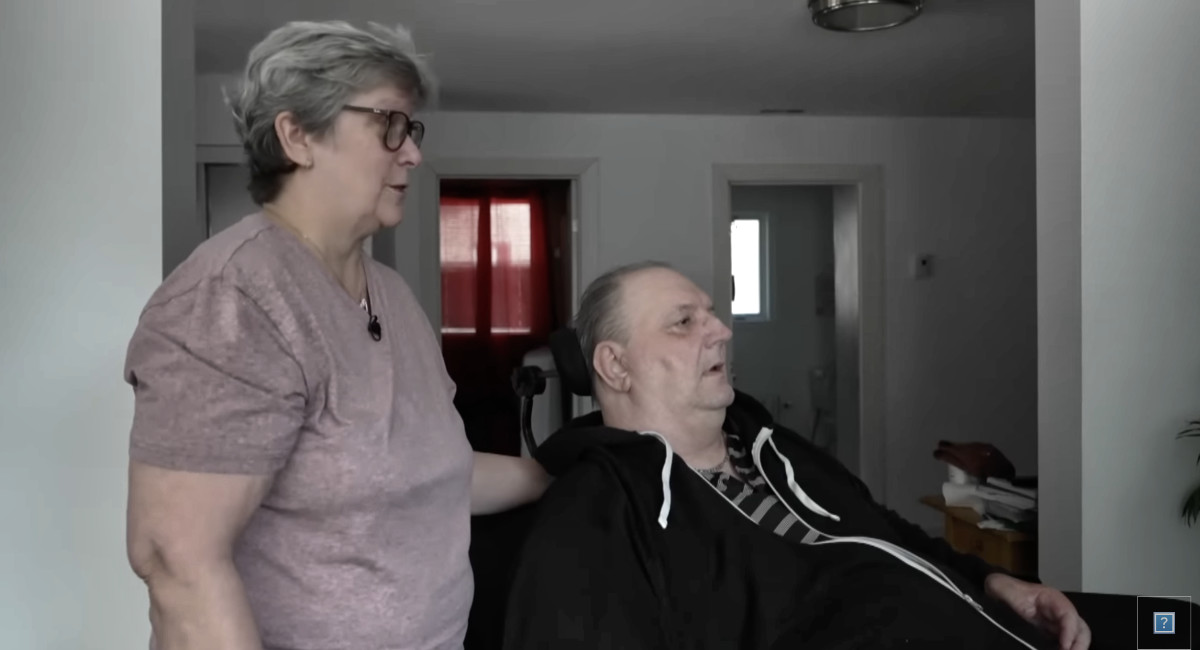A quadriplegic man who was checked into a Canadian hospital for a respiratory virus ended up dying through the country’s Medical Assistance in Dying (MAID) program after he was left on a stretcher for so long that he developed a severe bedsore.
Normand Meunier was checked into St-Jérôme Hospital in Quebec; a 2022 spinal cord injury had left his arms and legs paralyzed, and — according to CBC News — he was left on a stretcher in the emergency room for four days without being moved or given access to a special mattress as needed. This led to a pressure bedsore on his buttocks so severe that bone and muscle were visible.
Sylvie Brosseau, his partner, told Radio Canada that hospital staff are always informed about his needs, which were ignored in this instance. “Every time we return to the hospital, it is my duty to warn them that Normand is quadriplegic and that he needs an alternative pressure mattress,” she said. The mattress in question allows the pressure to be moved specifically to prevent the formation of any bedsores.
“When you are lying down, always in the same position, there is hyper pressure exerted between the bone and the skin and this prevents the skin from being well irrigated,” Jean-Pierre Beauchemin, a retired geriatrician, explained to Radio-Canada. “If the skin […] lacks arterial blood, it develops necrosis, the skin dies and this creates an ulcer. A pressure ulcer can open in less than 24 hours, then it takes a long time to close.”
Hospital management did say that they have 145 therapeutic mattresses with alternating pressure available.
“The equipment is available to all departments and used according to the requests of the care teams,” they said. But Steve Desjardins, director of nursing at the CISSS des Laurentides, said these kinds of mattresses aren’t available in the emergency room.
“The emergency is not a place that is suitable for this type of mattress because these are not beds in an emergency, they are stretchers [and] there is not really a mattress suitable for a litter,” he said. “An emergency is a place that is more at risk for a more fragile person, and that’s why we will work actively, if necessary, to give them access to a bed in an emergency unit hospitalization.”
Yet instead, Meunier was left laying on a stretcher for four days.
“Ninety-five hours on a stretcher, unacceptable,” Brosseau said. “… I don’t understand how this can happen, because a mattress is the most basic thing.”
Afterwards, the bedsore — which was several inches in diameter — was treated with several debridements, in which dead or infected tissue is scraped from the wound to help it heal. But he was told that it would take months for the wound to fully heal, and he was concerned about being a burden on his partner and the system.
“I don’t want to be a burden,” he said. “At any rate, the medical opinions say I won’t be a burden for long; as the old folks say, it’s better to kick the can.”
Trudo Lemmens, Scholl Chair in Health Law and Policy at the University of Toronto, said it’s extremely common for people with disabilities to feel like a burden on the health care system – and they are not offered assurances otherwise. “Then the system responds by saying: ‘well, you have access to medical assistance in dying,'” Lemmens said. “Medical assistance in dying is more easily available and on a more regular basis than some of the most basic care. It’s deeply troubling.”
Though the hospital is doing its own investigation, Brousseau said that isn’t enough, and has called for the government to open a separate investigation, claiming Meunier’s case is not an isolated one.
“Failings of this type do not occur only at St-Jérôme Hospital but are common in many regions of Quebec,” she said in a statement, along with Moelle épinière et motricité Québec (MÉMO-Qc), an advocacy organization for people with spinal cord injuries. “Let’s not wait for other tragedies to occur. Tangibly improving the offer of service and quality of care offered to people with disabilities would be the best way to honour the memory of Normand Meunier.”







